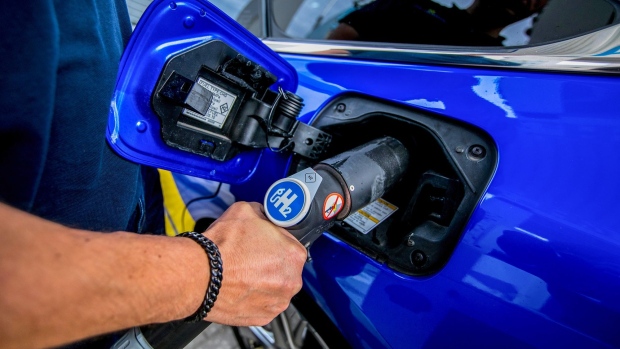Oct 14, 2021
Hydrogen Fuel Firm ECombustible Eyes Up to $1 Billion SPAC Deal
, Bloomberg News

(Bloomberg) -- ECombustible, a maker of hydrogen-based fuel, is in talks to merge with blank-check firm Benessere Capital Acquisition Corp., according to people with knowledge of the matter.
Benessere is discussing a potential deal that could value the combined entity at about $800 million to $1 billion, the people said, asking not to be identified because the information is private.
Details of the potential transaction could still change, and there’s no certainty the negotiations will lead to an agreement, the people said. Representatives for ECombustible and Benessere declined to comment.
Miami-based ECombustible is developing a hydrogen-based alternative fuel and has been running industrial-scale tests on its technology over the past few months, according to its website.
Jorge Arevalo, a former real estate investor and hotelier, founded the company about a decade ago. Arevalo says a realization of the power required to support those property developments, and a study of Nobel laureate Irving Langmuir’s research on clean energy, inspired him to start ECombustible, according to his LinkedIn profile.
Benessere, led by Chief Executive Officer Patrick Orlando and sponsored by ARC Global Investments LLC, raised $115 million in a January initial public offering. At the time, the SPAC said it would focus on dealmaking with technology-focused middle-market and emerging-growth companies in North, Central and South America.
Interest in hydrogen is surging, with many governments and businesses betting on it as the “clean molecule” of the future. Still, creating a hydrogen economy won’t be easy, as the multitude of companies in the space need to prove their technologies can be commercialized and work on the large scale needed for success.
Hydrogen holds the promise of decarbonizing industries that can’t easily run on electricity, serving as both a fuel and a way to store energy. When fed through a fuel cell or burned in a turbine, hydrogen can generate electricity without greenhouse gas emissions.
While nearly all the hydrogen produced today comes from natural gas, it can also be stripped from water using renewable power -- with no carbon emitted. The first generation of such “green hydrogen” plants is now under construction, due to come online in the next few years. It could potentially power cement and steel factories, cargo ships and airplanes alike.
©2021 Bloomberg L.P.


